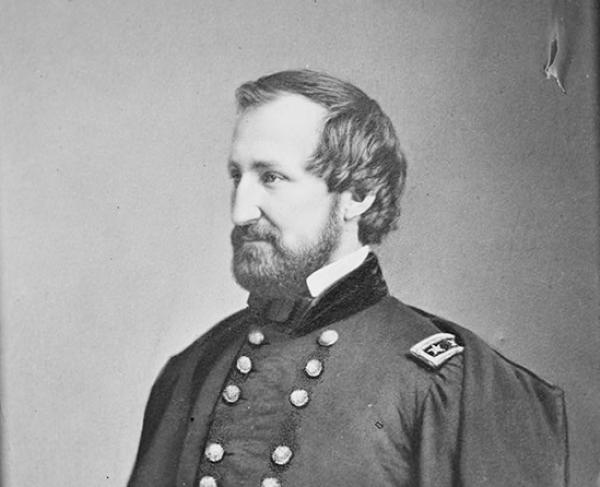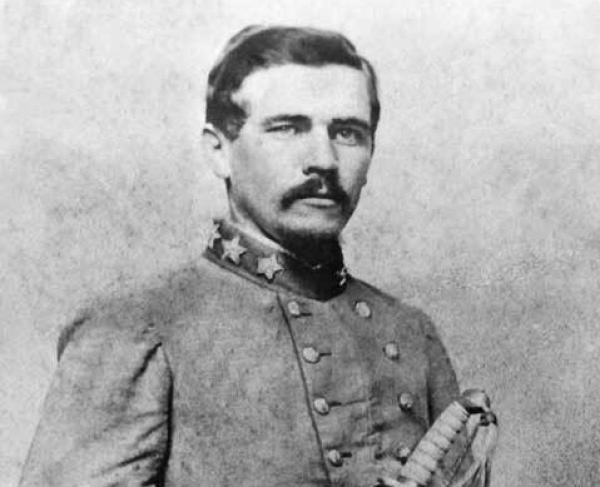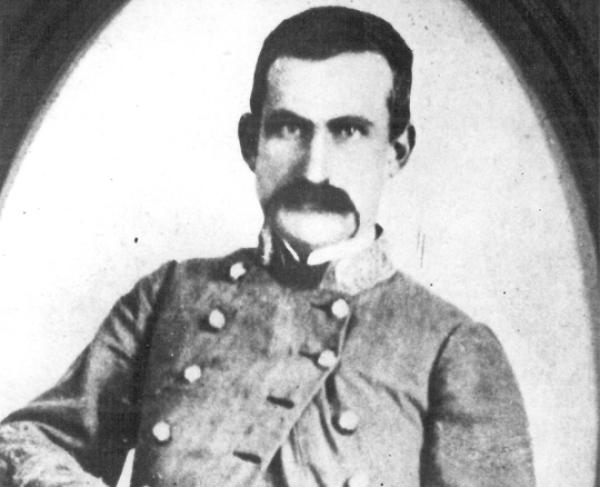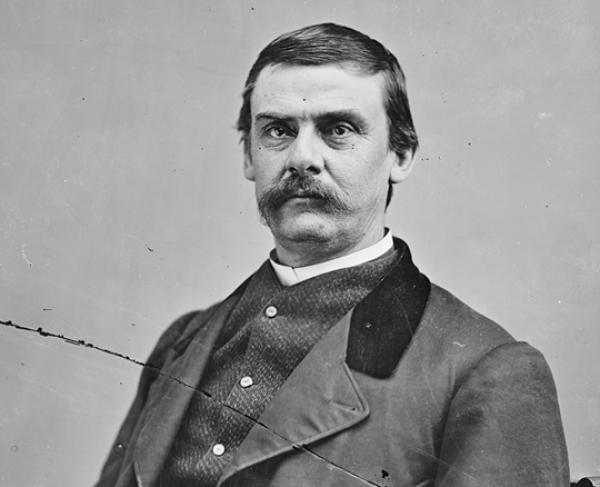William S. Rosecrans

William Starke Rosecrans was born on September 6, 1819 in Delaware County, Ohio. William’s father, Crandall Rosecrans, served under William Henry Harrison in the War of 1812. Although he had little formal education as a child, Rosecrans was regarded as studious and intelligent. Because his family had limited financial resources, he sought appointment to the United States Military Academy.
Rosecrans entered West Point in 1838. During his time there he earned the nickname “Rosy,” which would stick with him for the rest of his life. In 1842 he graduated fifth in a class of 56, finishing ahead of several future Civil War generals, including John Pope, Abner Doubleday, D.H. Hill, and James Longstreet. In 1843, Rosecrans married Anna Elizabeth Hegeman, with whom he would eventually father at least five children. In 1845 he converted to Catholicism.
Rosecrans’s antebellum military career was unremarkable. After assisting with the construction of coastal defenses in Virginia, he was transferred back to West Point, where he taught multiple subjects from 1843 to 1847. Unlike many of his fellow officers, Rosecrans never served in Mexico. After leaving West Point, he served on multiple engineering projects throughout the United States. In 1851 he was passed over for a job at the Virginia Military Institute in favor of Thomas J. Jackson.
Rosecrans resigned from the military due to poor health in 1854, leaving the Army as a First Lieutenant. Although none of his antebellum civilian pursuits were particularly lucrative, Rosecrans did earn several patents during this period. In 1859 an experimental oil lamp exploded, inflicting severe facial burns upon Rosecrans. Although the damage was covered by his beard the scars caused him to appear to be constantly smirking.
Shortly after the rebel bombardment of Fort Sumter, Rosecrans joined the staff of George B. McClellan. In June 1861 he was appointed as the Colonel of the 23rd Ohio Infantry and promoted to Brigadier General in the Regular Army (with his rank backdated to May 16). In the summer of 1861 Rosecrans served under McClellan during the successful Union campaign in western Virginia, clearing the way for the formation of the state of West Virginia in 1863. After McClellan was brought east to take command of the Army of the Potomac, Rosecrans was given command of Union forces in the region.
Although Rosecrans was an effective commander, personally courageous, and popular with his men, he was at times difficult to get along with. One contemporary wrote that, “To those above him he was always punctilious, often testy, and at times deplorably indiscreet.”
In May 1862 Rosecrans was transferred to the Western Theater and put in charge of a wing of John Pope’s Army of the Mississippi during the Siege of Corinth. Rosecrans replaced Pope after the latter was brought to the Eastern Theater in the summer of 1862. Rosecrans’s superior officer was Major General Ulysses S. Grant, who commanded all Union forces in and around Western Tennessee. Rosecrans led his troops to hard-fought victories on September 19 at Corinth, Mississippi and October 3-4 at Iuka, Mississippi. His failure to aggressively pursue the retreating Confederates after the Battle of Corinth, however, earned the ire of General Grant.
Following his victories at Iuka and Corinth, Rosecrans was sent to Kentucky to replace Don Carlos Buell as the commander of the Army of the Cumberland. Leading its new commander, the Army of the Cumberland fought Braxton Bragg’s Army of Tennessee to a standstill at the Battle of Stones River from December 31, 1862 to January 2, 1863. Rosecrans’s victory was a sorely needed bright spot in a dismal winter for the Union cause.
Despite heavy pressure from President Lincoln, Rosecrans refrained from advancing for the next six months. Finally, in late June, Rosecrans began a well-executed offensive that forced the Confederates to abandon the vital city of Chattanooga, Tennessee and retreat into Georgia. Nonetheless, Bragg’s army remained intact, as Rosecrans focused on capturing territory rather than destroying enemy forces. On September 19 and 20, Bragg struck back near Chickamauga Creek. In one of the few battles in which the Union was outnumbered, the Confederate Army of Tennessee delivered a crushing blow to the Army of the Cumberland, sending Rosecrans fleeing back to Chattanooga, where federal forces were quickly besieged.
After the disaster at Chickamauga, Grant, who had recently been promoted to overall command of Union forces in the west, chose to relieve Rosecrans of command, replacing him with Major General George Thomas. On his way to Chattanooga to assess the situation, Grant encountered Rosecrans, who was on his way back north. Grant later wrote, “we held a brief interview, in which he described very clearly the situation at Chattanooga, and made some excellent suggestions as to what should be done. My only wonder was that he had not carried them out.” For his part, Rosecrans remained bitter towards Grant for the rest of his life, blaming him for his fall from grace. He wrote to his friend James Garfield, “I consider my present situation an outrage on justice having few parallels in this or any other War. But I am a firm believer in the final downfall of iniquity.”
Although he commanded Union forces in Missouri in 1864, Rosecrans did not play a significant role in Union operations for the remainder of the war. In 1867 he resigned his commission in the Army. A year later he was appointed by President Andrew Johnson as the United States Minister to Mexico and served in the position for a year.
Rosecrans spent much of his postwar life in California. In 1880 he was elected to Congress as a Democrat. He represented California’s 1st District for two terms, serving from 1881 to 1885. During his time in the House of Representatives, Rosecrans opposed a bill to provide a pension to his old rival, Ulysses S. Grant, who at the time was almost destitute and dying of throat cancer. The legislation passed over Rosecrans’s objections.
Rosecrans died on March 11, 1898. He was initially buried in Rosedale Cemetery in Los Angeles, California. In 1902 his body was reinterred in Arlington National Cemetery.


